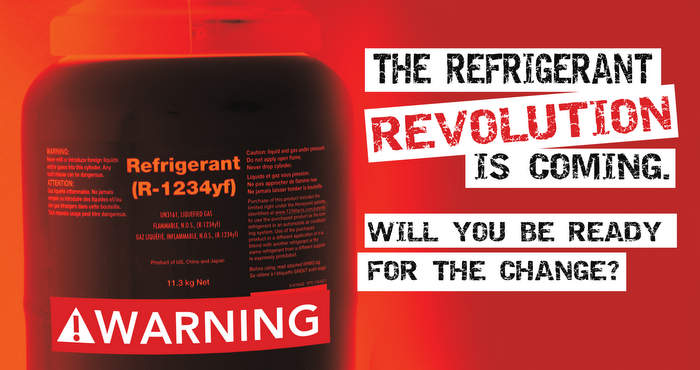Regular AC Maintenance Helps Prevent Compressor Failure
Not following the proper service procedures or compressor oil recommendations could be factors to early compressor failure.
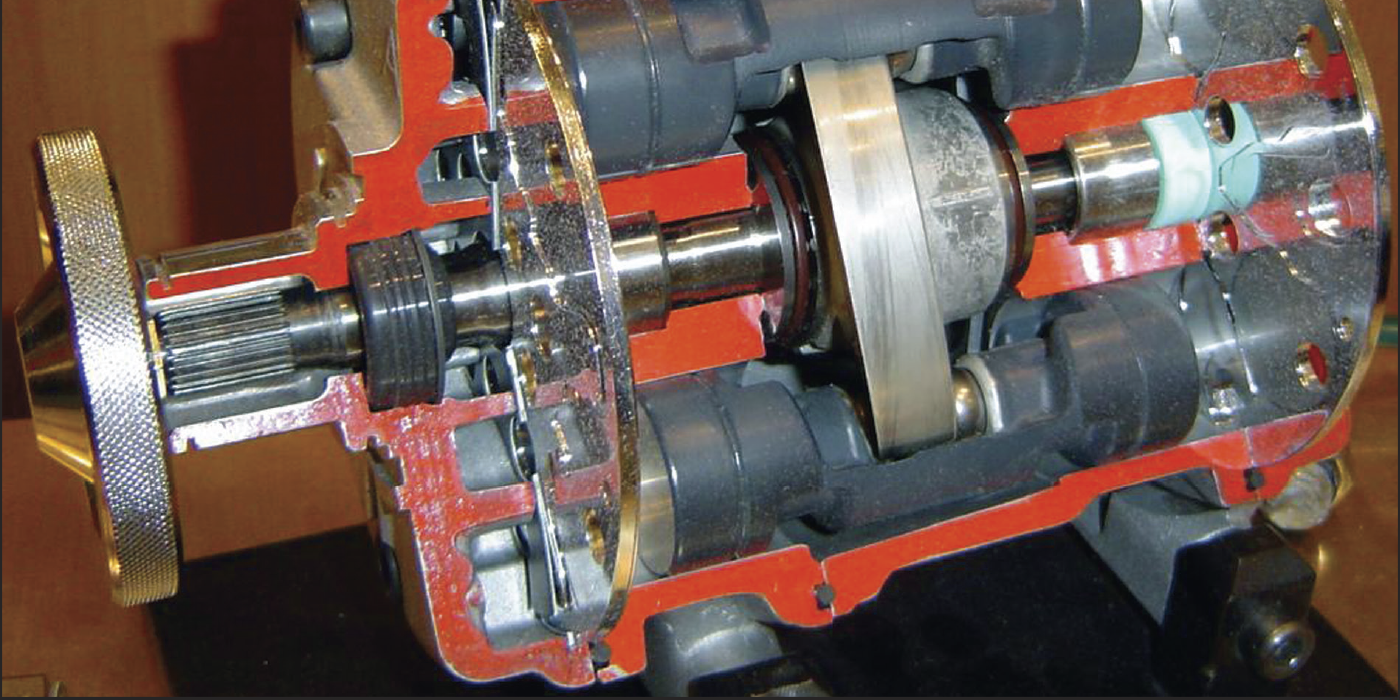
Prepare For R1234yf Now
Currently, there are approximately 35 million vehicles on the road with R1234yf in the HVAC system.

A/C Service With The New R-1234yf Refrigerant
Why should shops consider purchasing a new machine to handle R-1234yf refrigerant?

VIDEO: Servicing R-1234YF A/C Systems
Always check the refrigerant label to learn what should be in the system. This video is sponsored by MAHLE.
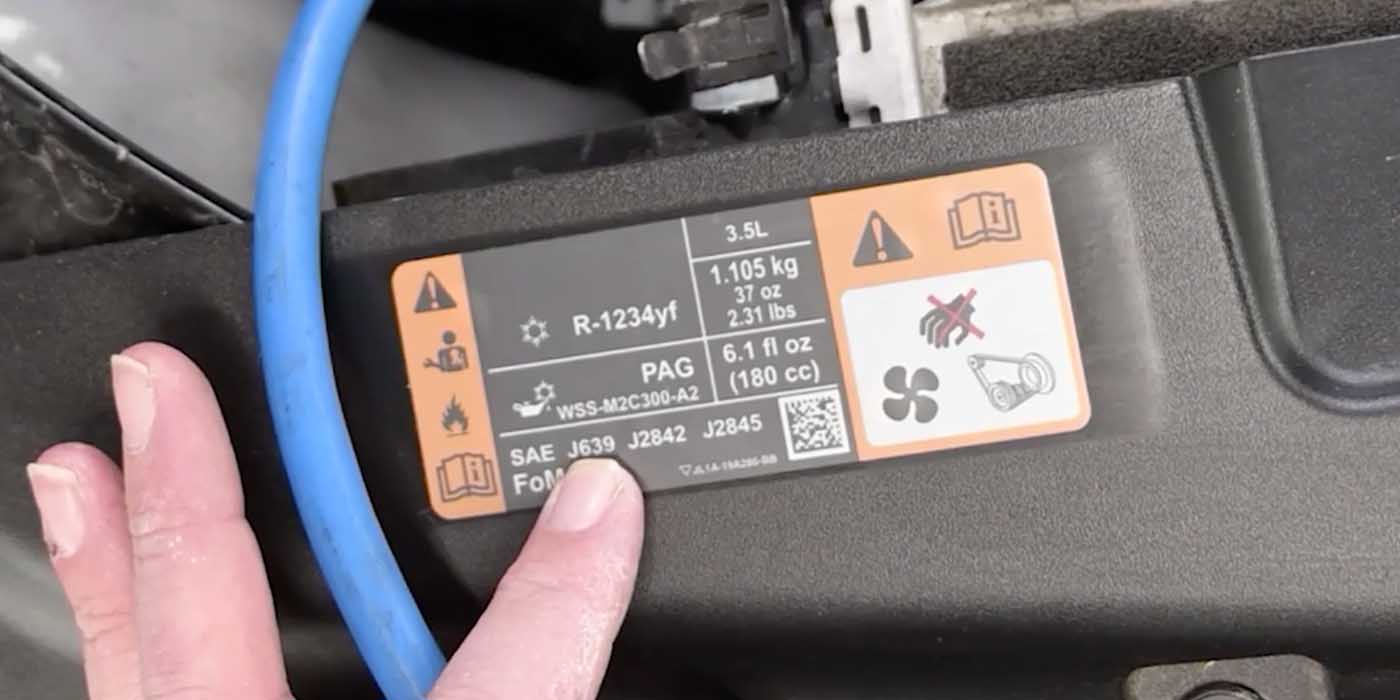
HFO-1234yf: Regulations And Requirements
SAE standard J2843, for “R-1234yf (HFO-1234yf) recovery equipment for refrigerants used in mobile air conditioning systems,” establishes the minimum equipment requirements for the recovery, recycling and recharging of R-1234yf.
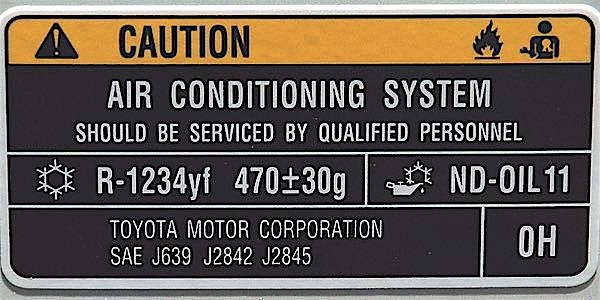
HVAC: A/C Update For R1234yf Refrigerants
The benefit of R1234yf is simple. The new refrigerant lasts only 11 days in the atmosphere compared to 13 years for R134a. This is why the EPA is requiring

Underhood Update On R-1234yf Refrigerant
If you haven’t had a lot of experience dealing with R-1234yf in your shop yet, get ready. You’re going to steadily be seeing a lot more of this refrigerant in the coming years. Underhood Service talked with ASE Executive Director of Special Projects Dave Cappert about R-1234yf updates and best practices techs need to know to be able to service these vehicles before one catches you off guard.

R-1234yf Safety Procedure Checklist
Remember that R-1234yf is only mildly flammable. To become flammable, the mixture of air and refrigerant in a closed area like a vehicle cabin would need to be between 6.5% and 12.3% of the chemical vapor. This mixture must then experience a significant amount of energy to ignite it. In some lab tests, a spark
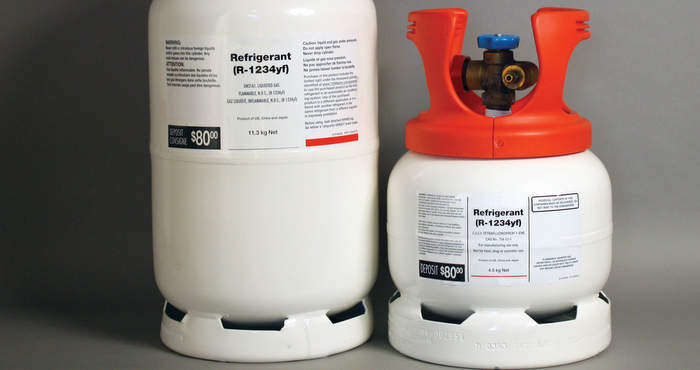
Refrigerant Revolution: What R-1234yf Means for Service, Equipment, Safety
The new R-1234yf refrigerant is more than just a new jumble of numbers and letters on a label. For your shop, R-1234yf means several new procedures, a certification and new equipment in order to properly handle these new systems. Why the difference in handling and servicing R-1234yf systems versus R-134a? The reason is flammability. Don’t
